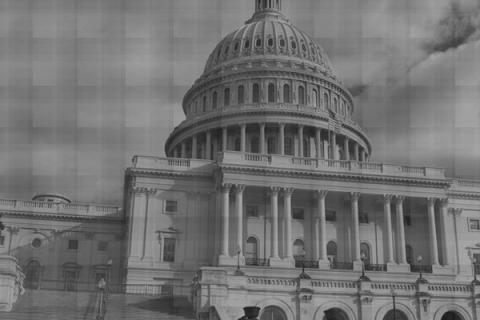It’s official -- California now has a citizens redistricting commission, at least for now. From a pool of 36 – 12 Democrats, 12 Republicans and 12 persons with no party affiliation – State Auditor Elaine Howle drew eight names at random on November 18 using a spinning wire basket and ping pong-style lottery balls.
"That's what this is all about," the Associated Press quoted Howle as saying. "It's about the people of California having the opportunity to draw the lines for their districts." Those eight -- three Democrats, three Republicans and two decline-to-state voters will select the remaining six members of the commission by December 31. The final tally will be five Democrats, five Republicans and four non-affiliated persons.
The commission, created by a November 2008 ballot measure, is charged with drawing Assembly, Senate and Congressional boundary lines for the 2012 elections. The once-a-decade process known as reapportionment has previously been in the hands of lawmakers. Backers of the commission, which include Gov. Arnold Schwarzenegger and independentvoters.org, say that is an inherent conflict of interest.
“Increasingly, partisan gridlock prevents our state lawmakers from effectively addressing the issues Californians care about most, including the state budget, health care reform, education funding and water and the environment, to name a few,” the League of Women Voters said in support of Proposition 11, the ballot measure creating the commission. “Contributing to this ongoing problem is the fact that legislators are allowed to draw their own district lines to guarantee their reelection. As a result, our lawmakers are not accountable to voters.”
Two rival ballot measures appeared on November’s ballot: Proposition 20, which expanded the commission’s authority to include drawing lines for California’s congressional delegation, and Proposition 27, a measure backed the congressional delegation to eliminate the commission. Voters rejected Proposition 27 and passed proposition 20. But, it appears lawmakers may be laying the groundwork for a legal challenge to invalidate the commission. Maintaining control over drawing their own district lines is one of the few issues on which Republicans and Democrats are united. The most likely legal attack would be that the commission violates either or both the federal Voting Rights Act or California’s Voting Rights Act by “disenfranchising” a class of voters.
Under the terms of Proposition 11, the two Republican and two Democratic leaders of the Senate and the Assembly are allowed to reject four each of the pool of 60 possible commission members presented to them by the state auditor. The four submitted a joint list of 24 names they wanted removed, including all potential appointees from Los Angeles, by far the largest city in the state with roughly 10 percent of California’s population.
"The mayor is obviously concerned that no one from the city of Los Angeles — the largest city in the state of California — is on the commission, as it should be a balanced representation of the state population,'' said Sarah Hamilton, a spokeswoman for Mayor Antonio Villaraigosa in a November 16 Los Angeles Times article.
Assembly Speaker John Perez, a Los Angeles Democrat, also expressed disappointment despite his participation in reducing the list of 60 names to 36. A logical legal argument would be that voters of Los Angeles are somehow “disenfranchised” by not having representation on the commission. Of the eight members, two come from Los Angeles County, three from the Bay Area, one from Santa Cruz County, one from Riverside and one from Yolo. Four are Asian, two are white, one is African-American and one is Hispanic.
The Republicans are Jodie Filkins Webber of Norco, Vincent Barabba of Capitola and Peter Yao of Claremont. Democrats are: Cynthia Dai of San Francisco, Elaine Kuo of Mountain View and Jeanne Raya of San Gabriel. Stanley Forbes of Esparto and Connie Galambos Malloy of Oakland have no party affiliation. Yao, Filkins Webber, Kuo and Raya earn between $125,000 and $250,000. Yao is a Claremont City Councilman who retired from Raytheon systems in 2005. Filkins Webber is a lawyer. Kuo was a senior research analyst at the University of California at Los Angeles. Raya is an insurance company executive. Dai and Galambos Malloy, the panel’s only African-American, earn $75,000 to $124,999, according to state auditor documents. Dai is the CEO of a marketing firm. Galambos Malloy is a program manager for Urban Habitat, which helps low-income individuals. Forbes was a former Davis City Councilman from 1996 to 2000. He is co-owner of The Avid Reader bookstore in Sacramento. Barabba, the founder of Market Insight whose website tracks consumer trends, makes over $250,000.
A true experiment in direct democracy, the commission garnered 31,000 applications by the cut-off date of February 16, 2010. Of the initial applicants, more than 21,500 were white — over 15,000 of them male. Some 12,700 Democrats applied, 12,000 Republicans and 4,500 decline-to-state voters. Nearly 21,000 of the 31,000 came either from the Bay Area or the greater Los Angeles area. Howle and her staff conducted personal interviews with nearly 120 of the most qualified candidates. Background checks were also run using information culled from numerous sources including Google, opensecrets.org, huffingtonpost.com, newsmeat.com and the state library, among others. Sixty – 20 Democrats, 20 Republicans and 20 of other or no party affiliation – were selected from that group and sent to the legislative leaders.

